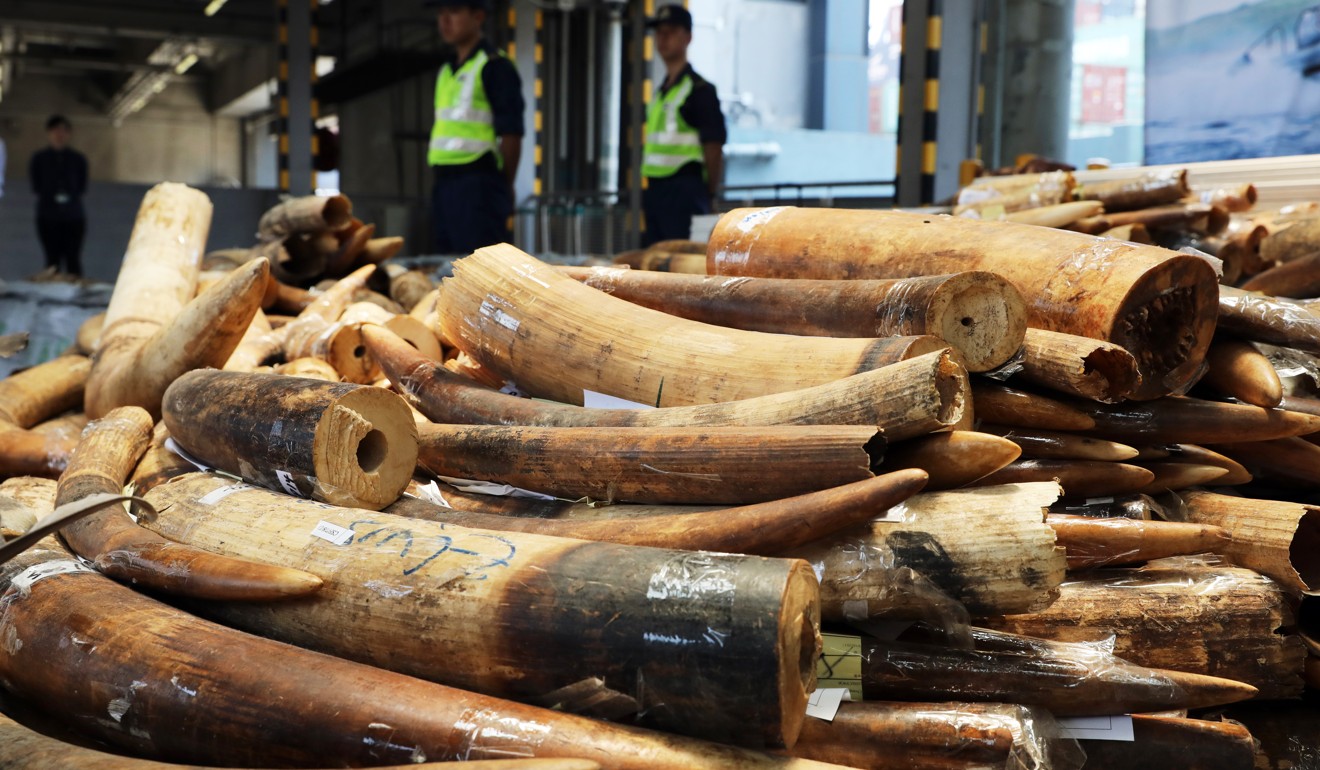
Customs in Hong Kong could use anti-gang laws to fight smuggling in endangered species
With even more seized consignments by August than in the whole of last year, officials agree with calls for use of Organised and Serious Crimes Ordinance, for bigger penalties and more investigatory powers
More cases of endangered wildlife smuggling in Hong Kong could be prosecuted using tougher organised crime laws in future, Hong Kong customs authorities said on Wednesday.
This came as the volume of endangered wildlife products seized at border checkpoints and cargo terminals in the first eight months eclipsed that for the whole of last year.
Customs officials nabbed 174 tonnes of endangered species worth about HK$58 million in 522 cases from January to last month, leading to arrests of 374 people and – as of July – 101 prosecutions.
This year’s haul was already 78 per cent higher in terms of cases, double in arrests and almost triple the tonnage seized over the same period last year. All figures greatly surpassed the overall tally for the whole of 2017, with the exception of monetary value – a massive seven-tonne seizure of raw ivory last July brought last year’s value to HK$142 million.
“The largest cases usually involved tree logs – 149 tonnes worth HK$27 million in the first eight months of this year,” said Chan Tsz-tat, head of the Customs and Excise Department’s ports and maritime command.
After that, he said, came pangolin scales. “In the first eight months, we seized a total of 16 tonnes [of the scales], with an estimated value of HK$13 million,” he said.

Other common species being smuggled through air, sea or land routes included orchids, American ginseng, fish maw, turtles, coral, rhino horn, dried seahorse, seal and whale teeth, and wood from the incense tree.
Because demand for such items was low in Hong Kong, specimens were probably destined for other “neighbouring areas”, according to Chan.
While many of those arrested were often just “mules” or tourists, there was evidence to suggest some were part of smuggling syndicates.
“Other than frontline enforcement work we also hope to conduct more in-depth investigations to trace smuggling syndicates and also employ financial investigations to crack down on these [groups],” Chan said.
Most wildlife smuggling offences are now prosecuted under the Protection of Endangered Species of Animals and Plants Ordinance, which comes with a HK$10 million fine and 10 years’ imprisonment.
Experts and conservationists have suggested wildlife crimes be included under the Organised and Serious Crimes Ordinance, also known as the OSCO, which would help authorities target the “kingpins” rather than the “mules” – a suggestion that Chan agreed with.
“The importance of the OSCO is that when we successfully prosecute we can request a court to raise the penalty. It will also give us more powers to conduct financial investigations,” he said. “If we see in our investigations that an offence satisfies the criteria for the OSCO, we will use it.
“Our target is, for all smuggling cases that appear to be syndicated, to use this ordinance in order to tighten the penalty and seize their ill-gotten gains. This is the direction we are working hard towards.”
A 10-week operation from June to last month – code-named “Defender” – between customs and the Agriculture, Fisheries and Conservation Department managed to foil 118 cases of endangered species smuggling, involving a total haul worth HK$19 million.
Officials seized 63 tonnes of logs, seven tonnes of pangolin scales and six tonnes of American ginseng, all hidden in cargo containers. They also seized 10 live turtles hidden among socks declared as “shoes and toys” and five live lizards in cereals declared as “toys and chocolate” in two express parcels.

